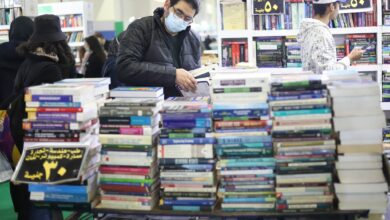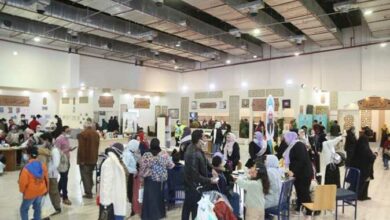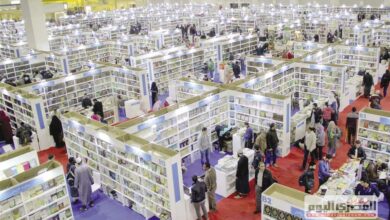A young man with a brush painting the Egyptian flag and writing the revolution's slogans on the walls was one of the first thing you saw when you got to Tahrir Square in the early days of the revolution.
Like him, thousands of other Egyptians also dreamed of a better future and expressed their dreams in their own ways. Some carried placards mocking the Mubarak regime. After some time, those mocking slogans turned to song lyrics, played with revolutionary music to warm the rebels' nights at the sit-in. Some painted their faces, shirts or the ground. Some developed stand-up comedy routines parodying the political regime, while others filmed the fighting at the front lines against thugs trying to attack the square, mostly to expose the lies of state-run media.
Naturally, the square turned into a huge space for creativity, showing a luminous face of the revolution, full of color, music and poetry. We all discovered the aspirations of beauty inside us; even after we toppled Mubarak, some of us cleaned the streets and painted the damaged walls.
I, for one, thought that we would follow up on our newly discovered passion for turning everything to an artistic expression, and that we would take every opportunity to nurture these rising cultural street festivals, showing ourselves and the world that this revolution is first and foremost a cultural one.
One opportunity that seemed imperative to capitalize on was the Cairo International Book Fair that opened on Sunday, one of the most important cultural events in the capital, which happens to coincide with the first anniversary of the 25 January revolution. It does not contradict the spirit of Tahrir Square and the demands of the people, yet it was closed on Wednesday. We could have had an awesome book fair, but now we actually need to continue to revolt against the suppression of freedom of expression.
We are revolting against the Supreme Council of the Armed Forces, which chose to "celebrate the glorious 25 January revolution." The head of the military's morale affairs department, Major General Ismail Etman, announced on 11 January that SCAF had decided to turn the street festivities into a military parade, with the air force organizing parades all over Egypt. Gifts will be handed out and the families of the martyrs, including those who were killed on Mohamed Mahmoud Street and outside the cabinet building during recent clashes under the SCAF’s watch, will receive medals.
Going back to this year's book fair — last year's was canceled because of the street protests — we easily notice how little has changed. As it stands, it seems that the political regime has little interest in cultural events, even when it concerns what was once one of the biggest book fairs in the world, or in the centenary celebrations of Egyptian Nobel Prize laureate Naguib Mahfouz in December 2011.
It was the publishers, booksellers and literati who condemned the proposed postponement of the book fair. Now we have a fair that opened a week earlier than planned and that is being closed on 25 and 26 January due to "security concerns." When SCAF announced its celebration plans, it had declared 25 January a new national holiday that celebrates the revolution and not just Police Day. So why close the fair on a national holiday? The fairgrounds in Nasr City are very far from downtown, and they are walled. The "security concerns" seem to be SCAF's fear of people gathering in large numbers, rather than a fear that anyone will vandalize the fair.
Although you cannot visit the fair today, the few days it was open showed a lack of organization, with some publishers complaining about not receiving their bookstands, and visitors having trouble walking around because of the unfinished construction work.
Ideally, this year's book fair would not have closed on 25 January, but would have extended beyond the walls of the fairgrounds, showing the cultural face of the revolution to those who have forgotten it after watching violent confrontations on TV for months now. Publishers and writers could have worked with NGOs and newly formed cultural institutions to reach out, although many of them were accused of receiving foreign funding and their offices were attacked by security forces last month. We could have had bookshelves at the square, and seminars and discussions about how we want to plan our future. We could all share our views, deepen our political awareness, and honor our martyrs.



